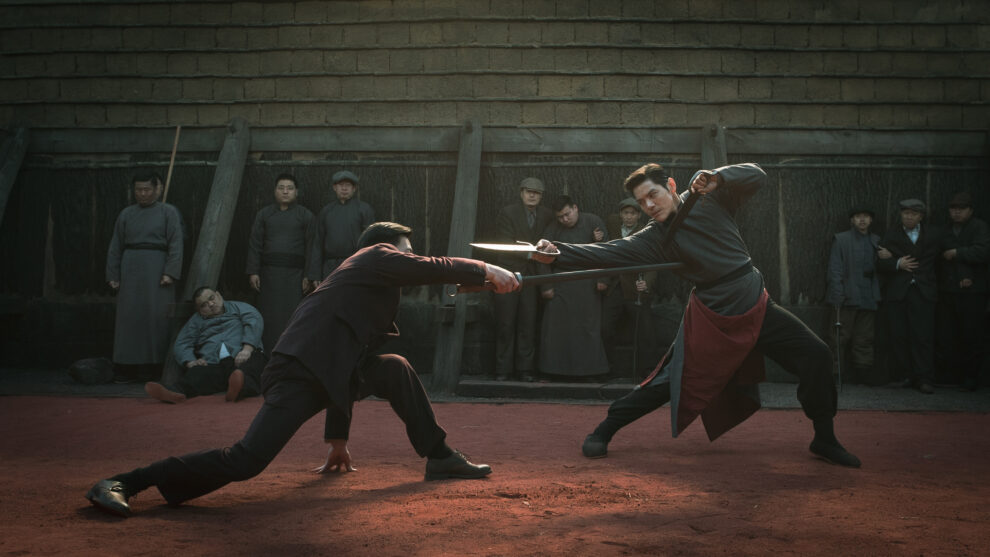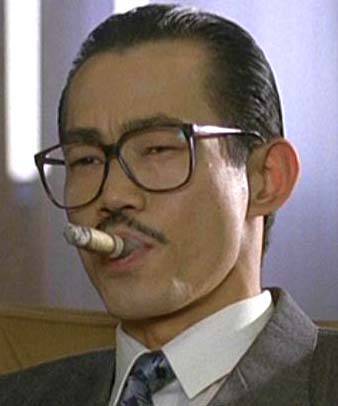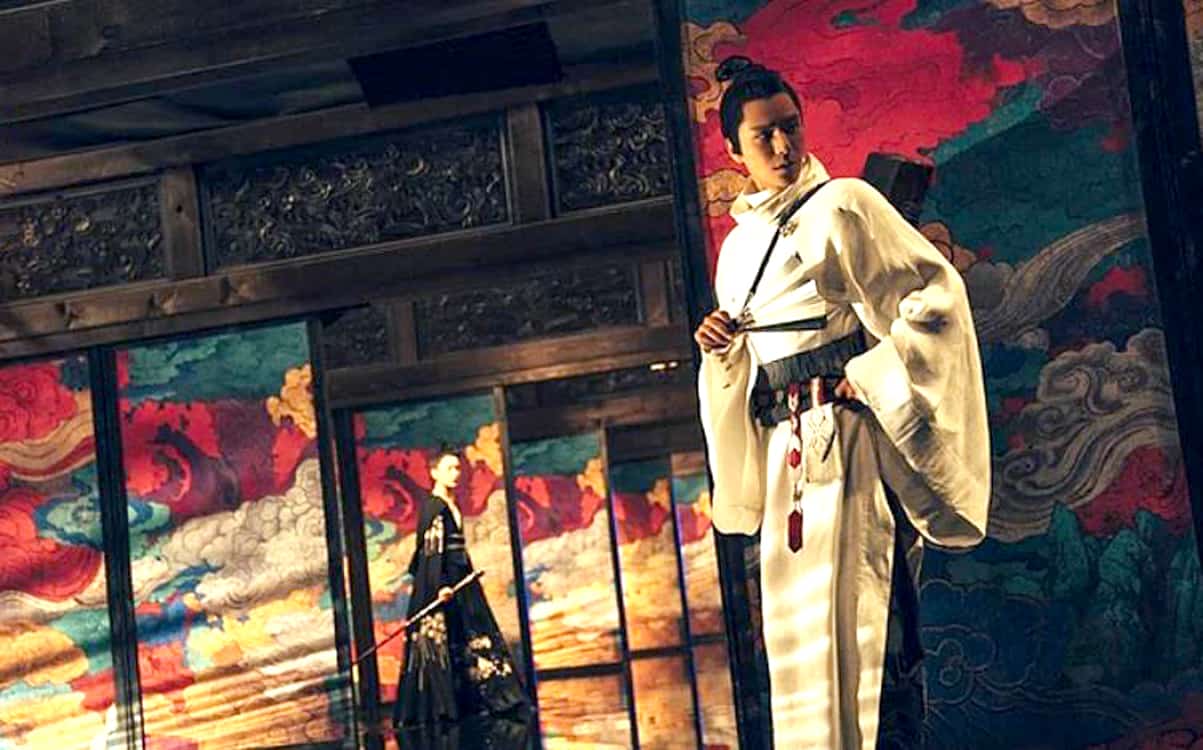Xu Haofeng has emerged as one of the most renowned authors, scriptwriters and directors of martial arts titles, with his credits including “The Grandmaster” (as a script-writer), “The Hidden Sword” and “The Final Master”. His latest works in particular combine wuxia tropes with ultra stylish visuals, with the last among the aforementioned titles being a distinctive sample. The same applies to “100 Yards”, which he co-directed with Xu Junfeng, which had its international premiere in Toronto
100 Yards is screening at Toronto International Film Festival

The story is set in 1920s Tianjin, just as a respected martial artist and leader of a wushu Academy is about to die. A regulated duel between the top apprentice, Qi and the master's son, Shen, kickstarts the saga, with the former winning relatively easily, and thus earning the ownership of the academy, with Chairman Meng acting as the steward of the deceased, enforcing his will. Actually, Shen's father always aimed for his son to move away from the constant fighting of the martial arts world, and had pulled all power in his hands to get him a job in a bank. Shen, however, prefers to continue on his father's footsteps and is not willing to accept the outcome of the fight so easily, while the westerners running the bank do not exactly see him as their equal, as he soon realizes. As the tension mounts in the area and various other groups get involved in the dispute, including the local hoodlums, the feud gets completely out of hand, with the two even disobeying the key rule of all the fighting taking place behind closed doors, and not in the street. The local wushu leaders are enraged, which makes things even worse for everyone involved.
Xu Haofeng and Xu Junfeng write and direct an ultra-stylish martial arts movie that also manages to move into noir and even a bit of western paths, while also following a number of wuxia traditions. Regarding the last aspect, the usual style of the HK action movies of the past is quite prevalent here, with the story revolving around key (action) scenes while a number of individual episodes and characters are not completely logical. Apart from that, the concept of the two apprentices fighting, a number of secret techniques, and a collection of unusual weapons all highlight the wuxia legacy of the movie.
It is also interesting how the women characters are embedded in the narrative, with them being the main source of the intrigue and the noir aspect, but also part of the action. Xia An, Shen's girlfriend in particular, has the main role in one of the most intriguing aspects of the story, where lies, treacheries, and the past become a factor affecting the main storyline significantly. Bea Hayden Kuo in the part is impressive, functioning as both a femme fatale and a victim of her situation in the best fashion. Tang Shiyi as Gui Ying also presents a very interesting character, more villainous this time, with gusto. Lastly, Li Yuan as Chairman Meng is impressive too in her overstylized presentation of a character that is also the main medium of the comment regarding the place of women in society. Lastly, the women in the story are the main mediums of the romantic melodrama aspect, that also works well, both as a relief of the action and as the source of a more intense analysis of the characters.
Regarding the acting, it is also a pleasure to watch the two main rivals in all their interactions, violent and non-violent ones, with Jacky Heung as Shen An and Andy On as Qi Quan playing off of each other in the best fashion, with both looking dangerous, cool, and occasionally off their feet in the most convincing and artful way.
At its core, however, and as all wuxia films, “100 Yards” is a martial arts movie, and the action scenes are where the main focus lies. And it is easy to say that the combination of martial arts choreography by Duncan Leung, the work done in the stunts and the presence of the protagonists results in a series of truly outstanding sequences, with the initial one in the snow and a number of the finale ones in the 100 yards, additionally being ultra-stylized and thus, even more impressive to watch. As such, Shao Dan's cinematography emerges as one of the best parts of the movie, with the ultra stylist approach working wonders here, both in the presentation of the action scenes, and the overall visual extravaganza the movie offers. In that regard, it is also worth mentioning the excellent job done in the music and the sound, with the former being the main source of western elements here. Lastly, Kong Jinglei's editing results in a pace that is fast and becomes faster during the action scenes, in perfect resonance with the movie's overall aesthetics.
“100 Yards” is a great movie, a successful experiment of what Wong Kar-wai and Hou Hsia-Hsen wanted to do with their wuxia, but this time, the action is at least as significant as style, in a balance that is bound to appeal to all martial arts film lovers.















